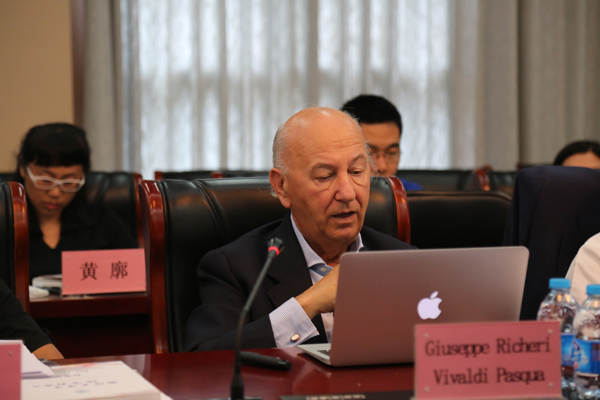
当下,对于欧洲大部分国家,特别是欧盟国家来说,跨文化传播已经成为一个重要课题。在这一研究领域当中,欧洲近代历史上不同阶段曾出现了不同的问题,其中有三个主要问题至今仍然有待解决。
跨文化传播的第一个问题与二战之后欧洲和美国的关系有关。美国文化虽然没有成为欧洲的主宰,却也来势汹汹,成为一种流行文化。大众媒体在塑造美国文化地位的过程中发挥了至关重要的作用。对于欧洲来说,虽然二战之后美国的军事和经济实力让欧洲民众印象深刻,但“美国神话”诞生的基础却不止于此。美国生活方式的神话是通过大众媒体被细致生动地刻画出来的:上个世纪七十年代,好莱坞的电影在欧洲市场中占据主导地位;此后,美国的影视作品又成为欧洲的私营广播电视节目的主要内容。为了减轻欧美之间影视内容交流的不平衡,欧盟有什么样的举措?
第二个问题涉及跨文化传播在欧盟中的作用。上个世纪八十年代,一些欧洲国家希望加速欧洲国家联盟的建设,它们不单将欧盟视作一个经济组织,更是一个政治联盟。因此,在这个联盟中,文化领域和大众媒体的地位就尤其重要。欧洲许多国家都有强烈的民族和地方文化认同,在这些国家之间建立一种欧洲认同并促进相互理解是十分必要的。针对这一目标,欧洲各政府组织是否采取何种跨文化传播策略呢?
第三个重要问题与欧洲的移民有关,这一问题从上世纪末期开始愈发显著。这些移民主要来自非洲、拉丁美洲和亚洲。他们因为某些原因(如政治的、经济的、宗教信仰的原因),从比较“困难”的国家来到了富裕且民主的欧洲国家。大众传媒在这之中也可以起到一定作用,但不是我们主要关注的对象。这里要讨论的问题是,这些移民欧洲的人有各自不同的传统习俗(如宗教信仰、文化、教育等),如何在尊重其传统文化的同时,告知他们成为欧洲公民所必需的信息、知识和条件(其权利和义务)。这里我们必须要讨论“整合”这个概念,因为它意味着将原来的文化和传统抹消,并用替换为新国家的文化传统,这一过程是有潜在风险的。
Intercultural communication is to-day a big issue for a large part of European countries, and mainly for the European Union. In that field we can underline three main problem that appeared in different moments of the recent European history, but that are still under discussion and not yet resolved.
The first one is related to the intercultural communication that since the end of the second world war characterized relations between Europe and United States. The role of American culture have been not dominant but very strong, mainly at popular level. Mass media played a central role to build and develop that role. The myth of United States have been based in Europe not only on its military power and economic strength that become evident to all European citizens during and after the second world war. But the myth of the American way of life have been build carefully trough mass media. Until the ’70 by Hollywood cinema that had a prominent market position in the European movies market and after by film and television contents that gained a very large space in the private broadcasting. Which initiative have been taken by European Union to reduce the imbalance of its audiovisual exchange with United States?
The second big problem is concerning the role of intercultural communication among European Union countries. When some European countries in the ’80 decided to accelerate the construction of the European Union not only as an economic organization but also as a political union, it was clear the importance of the cultural field and the role of mass media. It was necessary to build an European identity and a mutual understanding for many countries characterized by strong national and local cultural identity. Which have been the intercultural communication policies taken by European institutions to reach that objective?
The third big problem, that become more and more strong since the end of last century, is the intercultural communication with people that, for different reasons (political, economic, religious) come to rich and democratic European countries from “difficult” countries, mainly of Africa, Latin America and Asia. Also in this field mass media can play a central role, but the problem to discuss is how to respect the original culture of those people that arrive in Europe from many different traditions (religion, culture, education) and, in the same time, how to offer them the information, knowledge and conditions necessary to become European citizens (rights and obligations). The concept of integration must be discussed because the risk is that it mean to erase the original cultures and traditions to substitute them with those of their new country.
来源:中国社会科学网




